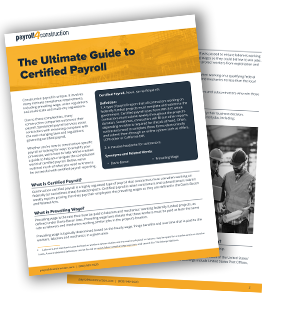How to Handle Multi-State Payroll
When you’ve got multiple workers on multiple jobsites with multiple wages and multiple pay rates, maintaining accurate payroll can get extremely confusing. Multi-state payroll in particular brings about a variety of time-consuming regulations that require absolute accuracy. According to Independent Electrical Contractors, more than 5,000 cities across 17 states have their own payroll regulations and city-specific tax rules that construction …

